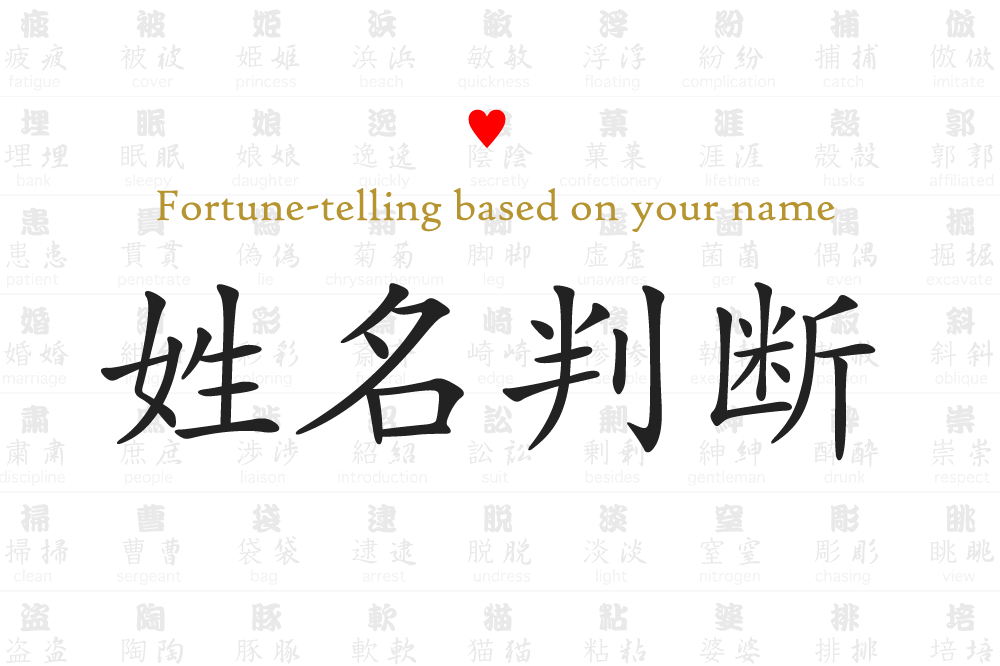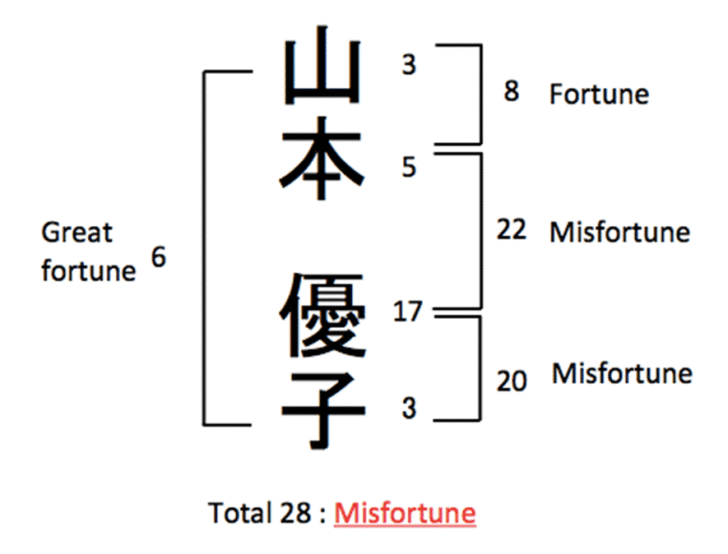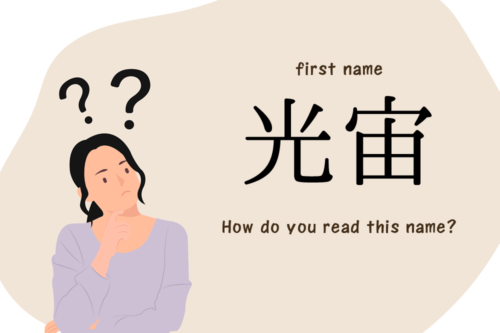Share on your favorite
Or copy the link
Below are navigation links that will take you to the main text and navigation menus.
26,551 first names, 70,620 last names, 333,585 kanji variations.
one of the best Japanese name search tools for your baby!

Choosing a favorite baby name can feel intimacy and affectionate. When parents name their children, they put a lot of thoughts and consideration into it.
Contents
In Japan, those are how parents choose a name for their children.
In addition to the above, there is another method of naming that determines and matches the number of kanji stroke.
“Seimei-Handan“ is one of the Japanese fortunetelling system based on the number of the kanji stroke of the name and it says that it is predicted the person’s personality or fortune.
“Seimei-Handan“ was introduced from China. It was proposed after Meiji era (in the late 1800s), at a time when people started to use last names and were becoming more and more interested in the good or bad quality of the name.
It has been said that the number of strokes of the kanji is important to indicate good luck. Also, they say that the number of strokes within an individual kanji, or the total number of strokes in the name should be a “lucky number”, and this will be a name that brings joy and happiness.
Here is what else “Seimei-Handan“ has been told that we can find out from the name.
There are many styles of fortune-telling in “Seimei-Handan“ method. Depending on the method used, the result would vary but here is one example.

The total strokes of the family name are 8, fortune.
Result: It is believed that she would have a strength of influence in her later life.
The total strokes of the second and third kanji are 22, misfortune.
Result: the type of person who works hard for other people, but there is a sense it would be betrayed, suffer mental damage.
The total strokes of the given name are 20, misfortune.
Result: the person would not strong in the constitution and unlucky in childhood. But she would show the talent of the arts and academics.
The total strokes of the first and the last kanji are 6, great fortune.
Result: the person would be able to get opportunities for education or job as she wishes. A strong supporter may appear later in life.
Total strokes of the full name are 28, misfortune.
Result: If the person succeeds and feels too superior to it, she may fail. It would be easy to try too many things and end up doing everything halfway. By focusing on the person’s goals and concentrating the efforts, she’ll find the way to success.
Reference: https://enamae.net
Some parents may focus on the interpretation of “Seimei-Handan“ to name their child. There are even paid websites that predict the name that matches their family names.
We don’t know if it’s believable, but when the kids grow up, they could tell them that their names were chosen based on “Seimei-Handan“. It’s kind of interesting, isn’t it?
There are no rules of naming. Believe it or not, it’s up to you but you might want to consider it as a naming option.




Sort by: Most Relevant
Sorts names by how closely they match your search meaning. Names containing more kanji that match your search terms appear higher in the results.
Sort by: Most Kanji Variations
Sorts names by how many different kanji spellings they have. In general, names with more variants tend to be more familiar and widespread in Japan (with some exceptions).
Sort by: Most Viewed
Sorts names by page views on this site. Views reflect global traffic (including Japan), so this does not represent popularity among Japanese people only. A high view count does not necessarily mean the name is famous in Japan.
What is Hiragana?
Hiragana is one of the two Japanese syllabaries. Each character represents a sound (mora), not a meaning. It is used for native words, grammatical particles, verb/adjective endings (okurigana), and to show pronunciation above kanji (furigana). It developed from cursive forms of kanji.
What is Katakana?
Katakana is one of the two Japanese syllabaries. Each character represents a sound (mora), not a meaning. It is mainly used to write foreign words and names, loanwords, onomatopoeia, and for emphasis.
What is a Kanji Idea?
Kanji are Chinese characters used in Japanese writing. Unlike katakana and hiragana, each kanji character carries its own meaning.
When we convert your name into kanji, we select characters whose sounds match the Japanese pronunciation of your name, while also considering the meaning of each character. The result is a unique combination of kanji that both sounds like your name and carries meaningful symbolism.
We refresh the kanji combination each time you visit, so you can discover different options. If you find one you like, save it to your favorites!
What are English Syllables?
A syllable is a unit of pronunciation in English — it’s the beat you hear when you say a word.
Here are a few quick examples:
cat = 1 syllable
ba-by = 2 syllables
beau-ti-ful = 3 syllables
On this site, English Syllables show how a name naturally breaks into sounds when spoken in English. This helps you understand how English speakers naturally say the name and where they pause between sounds.
What are Japanese Morae?
A mora (plural: morae, Japanese: 拍 Haku) is the basic unit of sound in Japanese — think of it as one rhythmic “beat” when speaking.
Here are a few quick examples:
あ (a) = 1 mora
あい (a-i) = 2 morae
きょう (kyo-u) = 2 morae
On this site, Japanese Morae show how many “beats” a name has in Japanese. Most Japanese names have about 2–4 morae, which affects how natural and rhythmic the name sounds to native speakers.
This helps you see how the name fits into the natural rhythm of Japanese speech.
What is English Transcription?
“English transcription” (romanization) is the romanized form of a Japanese name, intended to reproduce its pronunciation as closely as possible. It is also useful for searching names on this site.
Japanese-Style Nicknames
In Japan, nicknames are used to express familiarity and affection. Typical features include:
Shortened forms: Names are often shortened for closeness, e.g., “Yuki” from “Yukiko” or “Taka” from “Takashi”.
Suffixes: Terms like “-chan” (often for girls, also for young children) and “-kun” (often for boys) are used among family and close friends. Among very close adults, “-chan” may still be used. More details
Use & context: Nicknames are informal—common among friends, family, or close colleagues—and are not suitable for formal or professional settings. Their use implies a certain degree of intimacy.
Long vowels: The long vowel mark “chōonpu” (ー) extends the preceding vowel. For example, “あーちゃん” (A-chan) lengthens the “あ” sound.
Households
Sorts surnames by the estimated number of Japanese households that use them. More households generally indicates a more common or well-known surname.
About our last-name data

Success
Migration completed successfully!